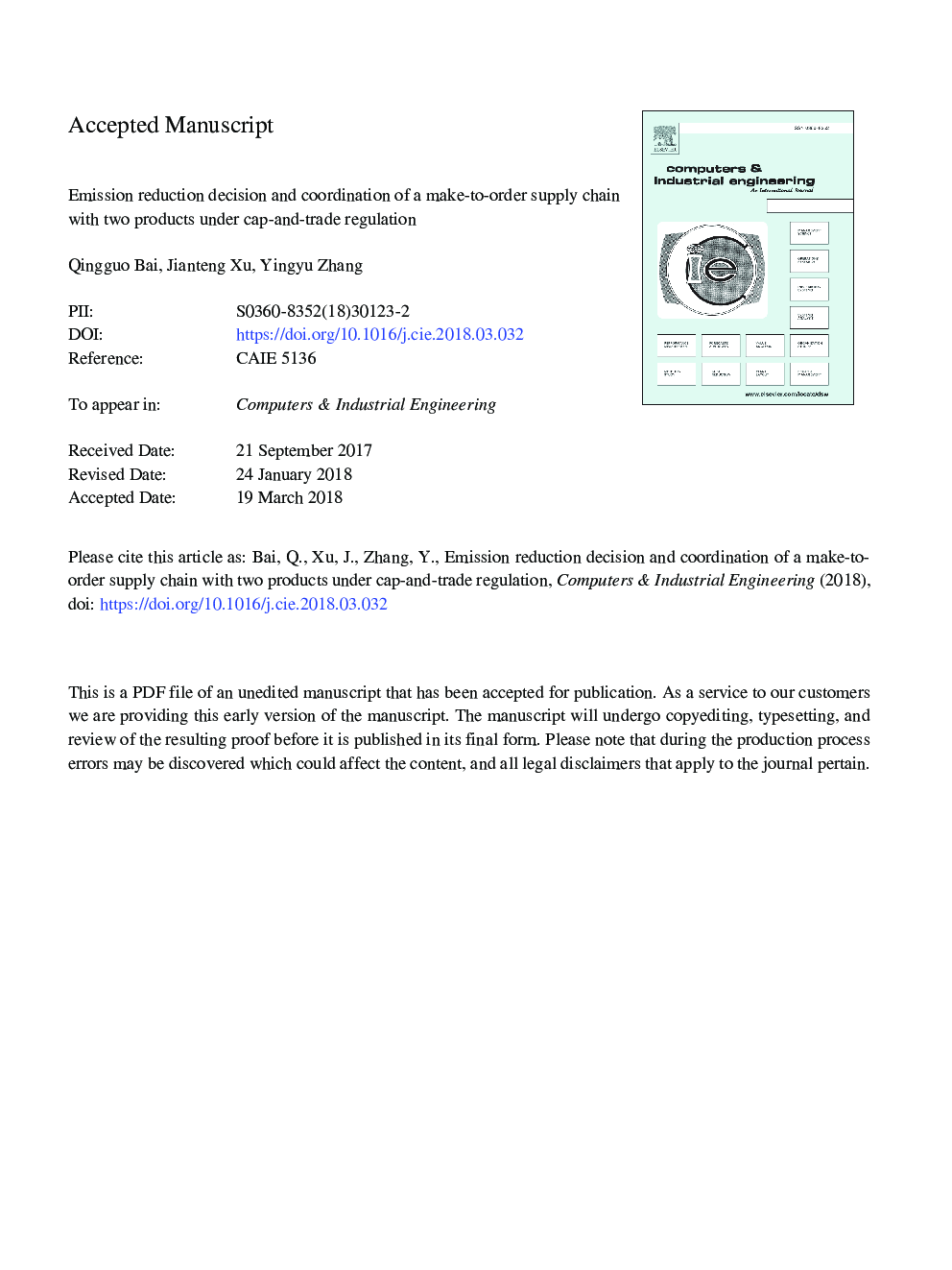| Article ID | Journal | Published Year | Pages | File Type |
|---|---|---|---|---|
| 7541127 | Computers & Industrial Engineering | 2018 | 26 Pages |
Abstract
This paper incorporates carbon emission reduction into a make-to-order (MTO) supply chain with one upstream supplier that provides two types of raw materials and one downstream manufacturer that produces and sells two products. Emissions from the supply chain are the result of production activities, and the manufacturer invests in emission reduction technology to curb carbon emissions under cap-and-trade regulation. We first analyze the optimal operational decisions of the supplier and the manufacturer in the decentralized scenario and then test the supply chain's performance by comparing its profit and carbon emissions with those in the centralized scenario. The results show that the supply chain's profit in the decentralized scenario can be improved and that carbon emissions can be reduced. We propose a revenue- and investment-sharing contract to coordinate the supply chain and derive several conditions under which the contract is accepted by both members of the supply chain. A numerical study is conducted, and the theoretical results and impacts of several key carbon parameters on supply chain coordination are presented to inform management decisions.
Related Topics
Physical Sciences and Engineering
Engineering
Industrial and Manufacturing Engineering
Authors
Qingguo Bai, Jianteng Xu, Yingyu Zhang,
